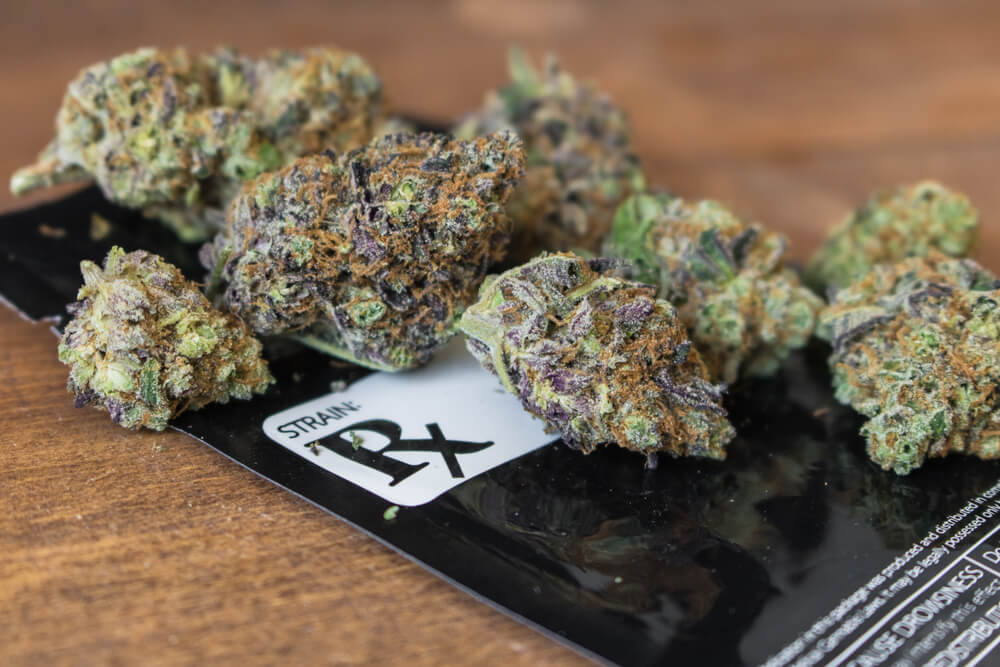There has been a lot of scientific research conducted over the past few decades that has revealed many potential health benefits of using medical marijuana. While most of these studies were primarily looking at the effects of cannabis on specific physical or mental conditions, many other surprising positive health attributes that these amazing plants could provide were also unexpectedly discovered. One of the most surprising health benefits of marijuana is its effect on our metabolisms.
Nowadays, due to the richness of the food we eat and the overall lack of physical activity that we incorporate into our lifestyles, our country (and most of the developed world) has been crippled with a massive obesity problem. While most of us know that we need to eat healthier and exercise more, we can all be sympathetic to how hard it is to lose excess weight once you have allowed bad health habits to continue on for too long. Even if you use extreme discipline and consistency with your diet and workout regimen, it can still be very difficult to lose weight and keep it off. This is why it makes more sense to use a type of metabolism booster to help make adipose (fat) weight loss much easier and more effective. Could medical or recreational marijuana be the weight-loss supplement that helps you obtain your ideal physical figure? Let’s take a closer look at the connection between marijuana and metabolism below:
What Is Your Metabolism Exactly?
Metabolism is a term that is used to describe a collection of internal chemical reactions that are used to keep all organisms alive and functioning properly. Essentially, metabolism is characterized by all of the processes that your body performs with external factors and elements to make and distribute energy internally. Metabolism is typically broken down into four major processes coinjoin homepage. These reaction classes include:
1) The conversion of fuel (such as food, water, or oxygen) into usable energy that can be used to run cellular functions.
2) The conversion of fuel into key biological elements such as carbohydrates, nucleic acids, lipids, and proteins.
3) The transportation of key elements into and out of different cells.
4) The elimination of biological wastes (that form primarily as a result of the three above processes).
The various physiological reactions that make up our metabolisms also fall into two major categories: catabolic or anabolic. Catabolic metabolism reactions describe internal biological processes that are made to break down certain elements into smaller components. Anabolic metabolism reactions are characterized by biological processes that build up complex byproducts from smaller compounds. It should be noted that catabolic reactions usually release metabolic energy while anabolic reactions absorb the same type of energy.
Since the term metabolism essentially describes how our food is broken down and absorbed within our bodies, it is obviously a key factor in losing weight and maintaining a healthy lifestyle. But maintaining a healthy metabolism is tough for so many of us with the prevalence of junk food and overall lack of time for exercise in the current state of our society. Is it possible that cannabis could provide us with yet another health benefit and provide our metabolisms with a much-needed boost?
How Does Marijuana Affect Your Metabolism?
Cannabinoids found in cannabis affect our metabolisms by interacting with a part of our bodies known as the endocannabinoid system. This complex system is responsible for controlling and monitoring a large number of processes in our physiologies related to mood, pain, memory, anxiety, and rest. The endocannabinoid system is also responsible for controlling our appetite and overall metabolism as well.
Does Marijuana Speed Up Your Metabolism?
While the interaction between cannabis and metabolism has not yet been fully determined, there are some factors that seem to indicate that marijuana consumption could speed up some of the ways energy and fuel are used within your body. For example, studies indicate that people who consistently use marijuana ingest an average of 600 dietary calories more than non-cannabis users every day. However, marijuana users seem to use these extra calories differently (or more effectively) because they have not been found to be more obese than the average person.
This fact is further bolstered by studies that have shown the ability of compounds found within cannabis to cause certain cells that control metabolism to increase their overall energy expenditure. So does marijuana increase metabolism? Well, to be honest, it still needs to be determined whether or not these effects occur uniformly throughout the entire metabolic system and body. More research still needs to be conducted in order to fully confirm the effects of cannabis on human metabolism. While the limited anecdotal and scientific results show promise, it should be noted that everyone’s body works differently and may react quite differently to marijuana use.
What Are the Effects of THC and CBD on Our Hunger and Metabolism?

THC (which is an acronym for its proper name tetrahydrocannabinol) and CBD (also known as cannabidiol) are the two primary medicinal cannabinoids found in marijuana plants. They also have interesting effects on hunger. Studies have indicated that THC has a similar chemical structure to endocannabinoids that we produce internally that help increase feelings of hunger. In essence, tetrahydrocannabinol is the cannabis compound responsible for the phenomenon known as the “munchies” that are commonly felt after a smoke session. If you have ever felt an uncompromising hunger after using some marijuana, then you certainly know this irresistible feeling.
In comparison, CBD seems to have an opposing effect and actually helps deactivate those same hunger-causing endocannabinoids. Interestingly enough, cannabidiol has also shown some ability to decrease cholesterol and fat build-up within the arteries. CBD also shows some potential to help quite a few people keep their overall weight in check as well.
Do Different Cannabis Strains Cause Different Metabolic Reactions?
As a result of THC and CBD affecting hunger and metabolism to a certain degree, it only makes sense that different marijuana strains could cause different metabolic reactions. Since both of these marijuana compounds have opposing effects, it would make sense for people who are new to ingesting cannabis to focus on finding strains that have nearly a 1:1 ratio of THC to CBD in their cannabinoid profile. Through these strains, newcomers could enjoy the health benefits of marijuana consumption without affecting their hunger and metabolism too negatively. If these strains end up being too psychoactive or stimulate sensations of hunger too much, you could always opt for a CBD-rich strain that has a corresponding low amount of THC. The Harlequin marijuana strain is a perfect example of such a plant; it has a 5:2 ratio of CBD to THC, making it very resistant to causing metabolic changes or hunger pangs.
Hopefully, this helps clear up any confusion regarding marijuana metabolism effects and how they can be used to your advantage in your or a loved one’s weight loss journey. If you have any more questions regarding the effects of cannabis on your metabolism or need clarification on anything related to medical marijuana, please contact Biofit! We are one of the top cannabis information resources found in the state of Florida; do not hesitate to use our services. Give us a call today for some expert medical marijuana advice.

